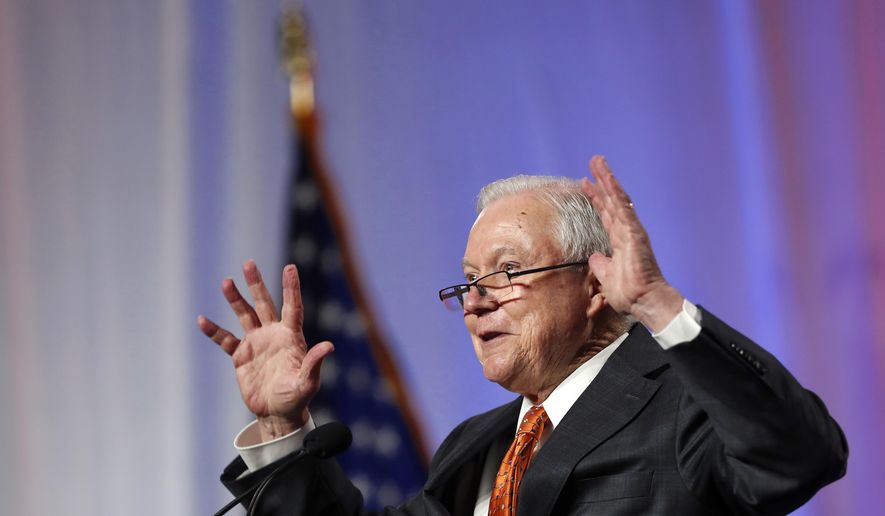
600-plus charged for unlawful opioid prescriptions, other crimes
Federal agents carried out the biggest health care fraud takedown “in history” on Thursday, the Department of Justice said, charging more than 600 people across the country with bilking taxpayers for $2 billion through fake medical claims and prescriptions for unneeded opioids.
Attorney General Jeff Sessions said 165 of those charged are doctors, nurses or other medical professionals who defrauded public programs like Medicaid, Medicare and Tricare, which serves military members, veterans and their families.
“Some of our most trusted medical officials, professionals look at their patients — vulnerable people suffering from addiction — and they see dollar signs,” Mr. Sessions said. “That is a fact. It is painful but true. Some of these cases prove it without doubt.”
In one case, a physician bilked Medicare for $112 million by doling out 2.2 million oxycodone and fentanyl pills without a medical basis.
Thirteen other defendants are accused of racking up $126 million in fraudulent billing from public insurance programs, mainly those that pay for health care for American military members, according to Mr. Sessions, who said he hopes the charges will be a deterrent to other medical professionals.
“These are despicable crimes,” he said. “We cannot tolerate them. We will not tolerate them.”
Federal officials said they used available data to pinpoint patients who were receiving an unusually high number of opioids or other narcotics and traced patterns back to rogue doctors or other bad actors.
In some cases, defendants swiped money from people seeking addiction treatment, or recruited patients so they could write fraudulent prescriptions and bill taxpayers. Other received kickbacks for supplying patient information to co-conspirators, who would in turn use that information to submit fraudulent claims.
These scams undercut the confidence of the American people. The perpetrators really are despicable and greedy people,” Health and Human Services Secretary Alex Azar said.
Mr. Sessions said the sweep exceeds last year’s unprecedented takedown day, when the department charged more than 400 people.
“We’re breaking records again,” Mr. Sessions said.
Federal prosecutors focused this year on opioid-related crimes, in particular, as President Trump urges his administration treat the prescription painkiller and heroin crisis as a public health emergency.
Opioid overdoses killed more than 42,000 Americans in 2016, and the official 2017 tally will probably be much worse, making the crisis a bigger killer than the HIV/AIDS epidemic at its height.
Congress has been ramping up taxpayer investments in the fight for years.
Right now, it is working on a major legislative package that would increase treatment options, stem the flow of deadly synthetic opioids into the country and educate patients about the risks of using opioid painkillers.
The Justice Department’s “strike force” operation spanned the country.
One ring in South Texas included a pharmacy chain owner and lead pharmacies who used fraudulent prescription to fill bulk orders of more than a million opioid pills —hydrocodone and oxycodone —which it in turn sold to drug couriers, according to an indictment. The crime ring involved nearly 50 people and $291 million in purported fraud.
In southern Florida, more than 120 people were accused of submitting $337 million in false billings. They include employees at sober-living facilities who used fraudulent urine tests to submit more than $100 million in claims.
Agents say a defendant in central California offered prostitutes and expensive meals to a pair of podiatrists in exchange for prescriptions that weren’t necessary, allowing the conspirators to submit $250 million in fraudulent claims.
“These crimes have a significant impact on defenseless Americans. Medicare and Medicaid are not just lots of money — pots of money where no one will miss $1 million here or there,” Mr. Azar said.
“They represent the hard work of generations who pay into the system and depend on it to lead healthy lives. The victims of these fraud schemes are the American people.”
